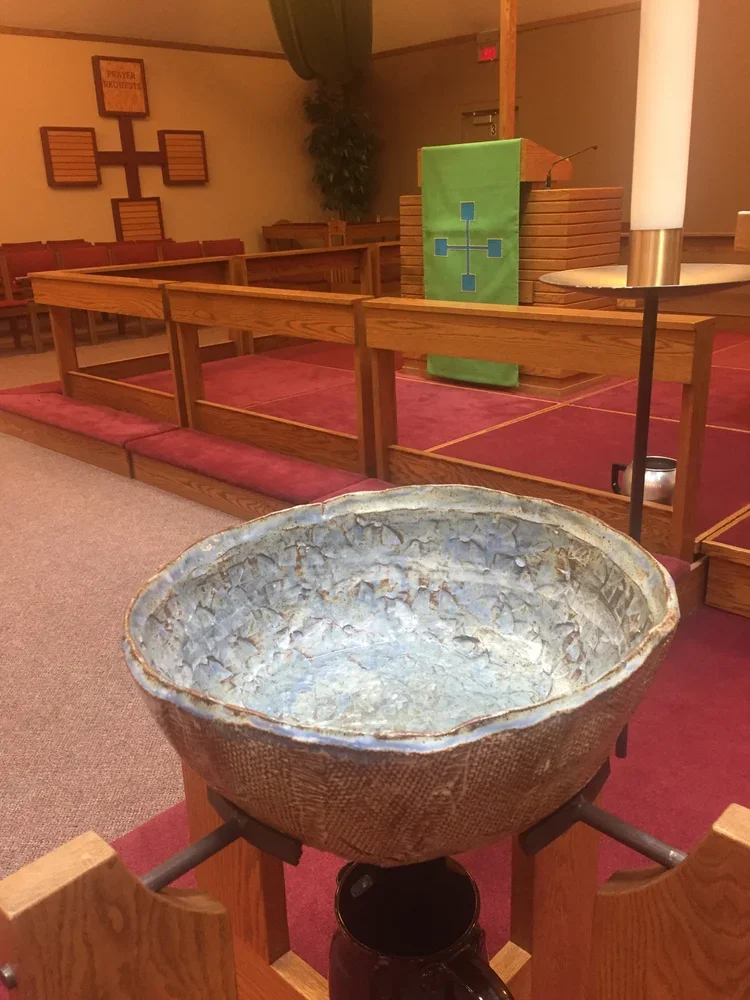Watch Live
Worship Style
Worship is central to who we are here at All Saints. You’ll find a casual, come-as-you-are atmosphere, and worship that blends ancient and modern liturgies, fantastic music, camp songs, old favorites, and space to breath, reset, and welcome the Holy Spirit
to keep speaking and leading us into the world.
Can’t join us in person? No problem! Worship is live streamed on Facebook and YouTube
Worship Practices
-
We have a children’s message for them every week (with snacks). Here at All Saints, we welcome children of all ages as integral members of the body of Christ, and welcome the sounds and activity that accompany them! We even have a bucket of percussion equipment they can play with during the sending song, to let their noises be lifted up to God in worship.
The PrayGround area is designed for children to quietly engage in age-appropriate activities while experiencing and participating in worship in the sanctuary with their families. If your child needs to release additional energy during worship, the nursery is also a safe space for them to be! Contact Leah with any questions.
-
Communion is also called the Lord’s Supper for a reason- this is God’s table and all are welcome here, no exceptions. You do not have to believe just right, or act a certain way. God wants to meet you here, because you are loved just as you are.
Kids of all ages are welcome to receive communion. If you desire a first communion class in advance of them recieving communion, or to help them understand why we do communion, please email the pastors to set that up
-
Baptism is a holy ceremony where people are brought to a font of water in a public gathering to recognize God’s claim upon their lives, and a lifelong journey of the Spirit sending them out in mission for the sake of the world. People enter into Christian community through baptism at various ages and stages in life, and in Lutheran churches this faith journey often begins during childhood.
-
We have Seeds of Faith (Sunday School) for children ages 3 through 5th grade and Confirmation for 6th-8th graders. If you would like to register you child to join, you can register them through our Events Page.
More Worship Questions?
-
We are a liturgical church so worship follows a typical routine. We have a centering song that plays for a few minutes before worship to help us recognize why we are here. We begin worship with a greeting and a gathering song. We then have a time for confession and forgiveness or a thanksgiving for baptism. We then have a children’s message, followed by the readings from scripture. After the sermon, we sing another song, pray for our community and the world, and gather an offering. We have communion every week, and end our service with one more sending song that typically fairly upbeat.
We have a variety of songs that can feel eclectic, which matches our band- it’s not traditional, it’s not contemporary, it’s our community showing up with their instruments (guitar, violin, oboe, drums, and trumpet) and thanking God through their gift of music!
-
We work to make our services inviting for everyone to attend. You do not have to believe the same things, you do not have to do anything, you do not have to give anything. Come as you are because you are already a beloved child of God. We just ask that you are present and respectful of the worship service and people in it so the Holy Spirit can do the heavy lifting beyond what we can imagine.
-
We have a children’s message for them every week (with snacks). Here at All Saints, we welcome children of all ages as integral members of the body of Christ, and welcome the sounds and activity that accompany them! We even have a bucket of percussion equipment they can play with during the sending song, to let their noises be lifted up to God in worship.
-
We would love to have you volunteer during worship. We have a team of people who help in a variety of ways. We have volunteers who help prepare communion before worship, serve communion during worship, read scripture during the service, offer special music, and run the slideshow and soundboard. If you have any interest in helping, email the pastors and we will get you plugged in
Care and Life Events
Baptism
Baptism is a holy ceremony where people are brought to a font of water in a public gathering to recognize God’s claim upon their lives, and a lifelong journey of the Spirit sending them out in mission for the sake of the world. People enter into Christian community through baptism at various ages and stages in life, and in Lutheran churches this faith journey often begins during childhood.
Wedding
If you are interested in having your wedding ceremony and/or reception at All Saints, please contact Pastor Jules or Pastor Wes to begin the process of planning your wedding!
Funeral
If you are a family member or friend looking to help plan an upcoming service, please click the button below.
You can watch all of our previous services on our YouTube channel. You can play them directly on this page, and you can subscribe using the button below so you are notified by YouTube when we go live!
Previous Worship Services
Listen to our Sermons
Did you miss a week of worship? Or maybe you loved a sermon and just can’t get enough. Either way, you can catch up on previous sermons with the ASLC Podcast on your favorite podcasting services. You can also listen using the webplayer right here!





